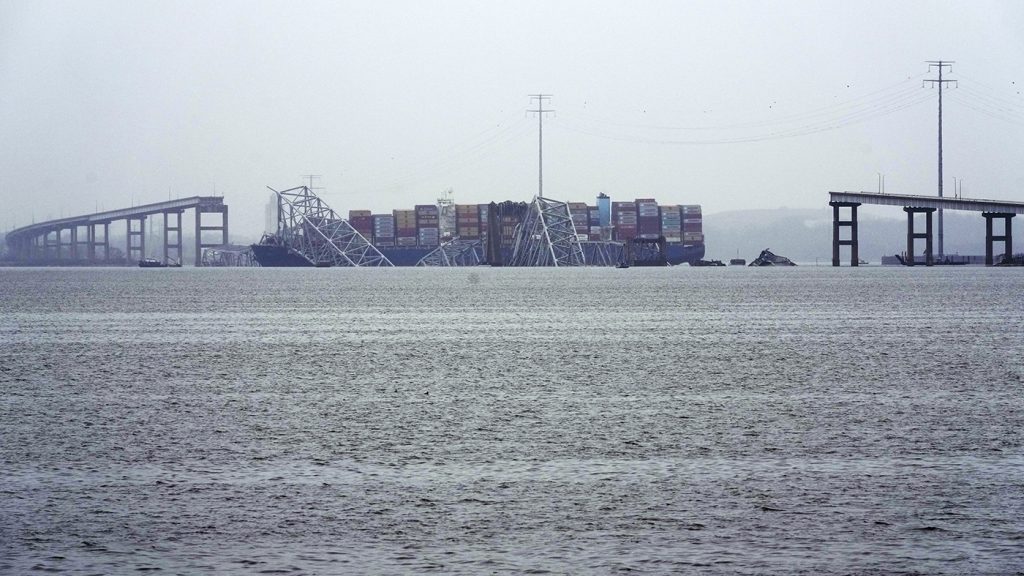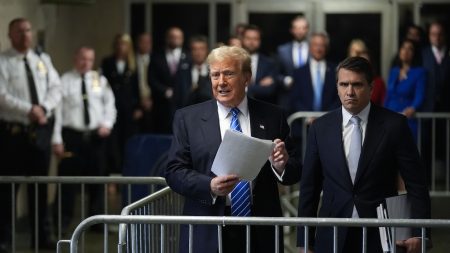The disagreement over Congress’s involvement in fixing a historic bridge in Baltimore is already escalating on Capitol Hill, just days after it collapsed.
President Biden promised on Tuesday that the government would pay for the enormous cost of reconstructing the Francis Scott Key Bridge, a crucial route connecting to the Port of Baltimore, one of the busiest shipping routes in the country. A cargo ship, nearly 1,000 feet long, struck the bridge after losing power as it departed Baltimore Harbor, causing it to drift into a support pile early on Tuesday morning.
Biden’s proposal is already receiving praise from several Democrats, especially those in Maryland, who argue that the port’s significance goes beyond the state, making the repairs a matter of national importance.
They assert that only the national government has the resources to complete the task.
However, the idea has immediately triggered criticism from conservative fiscal watchdogs, who are already opposed to Congress’s recent approval of a large 2024 spending package and believe that Washington cannot afford to add more debt.
They argue that the Key Bridge is a regional issue that should be handled by local governments.
“The very idea of the Federal Government paying for the Baltimore bridge is COMPLETELY ABSURD!!” Rep. Ralph Norman (R-S.C.) conveyed to The Hill via text message. “This illustrates the old saying ‘ROBBING PETER TO PAY PAUL!!’”
Republicans are not the only critics. Some liberals are also questioning Biden’s proposal, contending that the responsibility for the tragedy lies, at least partially, with the owner of the cargo vessel, who should bear some of the repair expenses.
“Let’s be clear about the tragedy in Baltimore. That bridge didn’t just collapse. There was no earthquake. The bridge was knocked down (apparently) by a private ship that lost control. Shouldn’t they be at least partly responsible for fixing it?” said Jamal Simmons, a Democratic strategist, and Vice President Harris’s former communications director. a Democratic strategist and Vice President Harris’s former communications director.
Treasury Secretary Janet Yellen stated Wednesday on MSNBC that she anticipated insurance payments to cover a portion of the bridge rebuilding costs.
The discussion is expected to become more intense when Congress returns to Washington in mid-April after the long holiday break. Party leaders will already be dealing with a number of contentious issues, including an extension of the government’s domestic surveillance authority and military aid for Ukraine and Israel.
The cost of repairing the bridge remains uncertain – some estimates suggest it could reach $2 billion. However, just hours after the incident on Tuesday, Biden expressed confidence that he can secure Congress’s support.
“It’s my intention that the federal government will cover the entire cost of rebuilding that bridge, and I anticipate Congress to endorse my initiative,” he informed reporters at the White House.
This commitment has been praised by Maryland lawmakers, who are determined to prioritize the funding in the upcoming session.
Sen. Chris Van Hollen (D-Md.) said he can't predict exactly when Congress will act, but they will start working on it when they return to the Capitol.
Van Hollen, who has represented Maryland in Congress since 2003 — first in the House, now in the Senate — said the parties involved are still assessing how much money will be needed to rebuild the massive bridge. He thinks a rough estimate will be available in the next few days.
In the meantime, Van Hollen said the state will request resources from a federal emergency fund, which will cover about 90 percent of the costs for the bridge replacement. The remaining 10 percent will be covered by state funds, and he and Sen. Ben Cardin (D-Md.) are working on legislation to cover that portion.
“First, we need to get the estimate for the full cost of the bridge. We’re going to move quickly to submit legislation,” Van Hollen said Thursday.
Emergency funding has historically been less controversial. When the I-35 bridge collapsed in Minneapolis in 2007, both chambers passed emergency funding and former President George W. Bush signed it into law within a week.
But the debate about how to handle the latest disaster is quickly heating up on cable news. Conservatives are already criticizing the idea of allocating more federal dollars to the problem. Rep. Dan Meuser (R-Pa.) described Biden’s plan as “outrageous.”
“He doesn’t refer to it as the American taxpayer dollars on anything. You know, the first reaction — in fact, the only reaction — just tends to be to spend,” Meuser said Thursday in an interview with Fox Business’s Maria Bartiromo. “We just can’t take the easy route all the time and just try to spend the taxpayers’ money.”
Given the expected resistance from the right, some Democrats are already voicing concerns that getting approval for a federal fix will be a challenge in Congress, especially because Maryland is a Democratic-leaning state, which could reduce the GOP appetite for the emergency funds.
With that in mind, some lawmakers are already considering attaching the bridge funding to a foreign aid package, including new military help for Ukraine, which Speaker Mike Johnson (R-La.) plans to address when Congress reconvenes in mid-April after the long holiday recess.
“It could certainly be attached, and if we’re going to move the national security supplemental, why not do that?” Rep. Jim Himes (D-Conn.) said Wednesday by phone. “I don’t think that that has a lot of political sway. There’s not a lot of Republican senators from Maryland, so I would certainly not object.
“Sadly, it’s hard to get anything done. So if we need to get the bridge rebuilt, which we do, why not put it as part of the larger supplemental?”
As the debate evolves, some unexpected voices have emerged in support of a federal fix.
Rep. Tim Burchett (R-Tenn.), a spending hawk who criticized GOP leaders over 2024 funding, pointed out that the federal government should intervene because an interstate highway — maintained by the U.S. Department of Transportation — was destroyed.
Burchett also stated that Washington has a strong interest in reconstructing the bridge because of how important the port is for national and international trade. He added that any legal disputes with the shipping company can happen later.
“My initial thought would be that the federal government would pay for it and then recover the money from the insurance,” he said. “Business would suffer until we organize ourselves.”
Al Weaver contributed.









